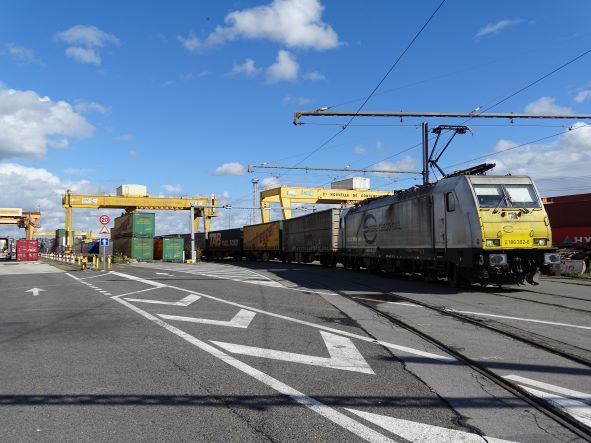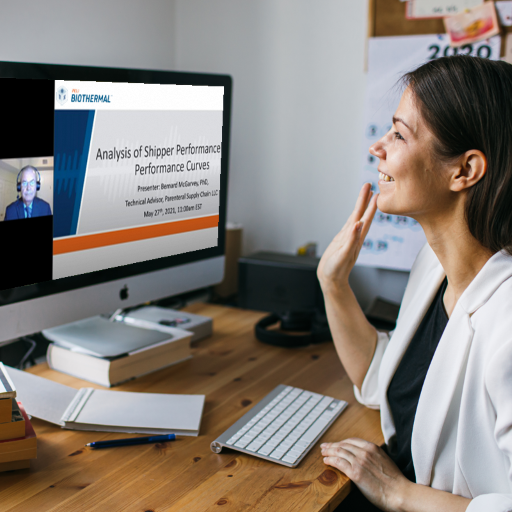German company HHLA Sky has been named one of the 100 most innovative medium-sized companies in Germany by the renowned Top100 competition. The Top100 seal was presented to the managing directors of HHLA Sky, Lothar Müller and Matthias Gronstedt, by Germany’s prominent science journalist Ranga Yogeshwar at a gala event held recently in Frankfurt am Main.
The award evaluates how consistently a company focuses on an innovation goal and integrates it into its structures and planning, according to more than 100 indicators. The scientific analysis is conducted on the basis of five categories: innovation-promoting top management, innovation climate, innovative processes and organisation, external orientation/open innovation and innovation success.
HHLA Sky is the technology leader in the field of mobile robot management. The company has developed a globally unique IoT platform that maps the entire process chain when using industrial drones. This software is used in HHLA Sky’s Integrated Control Centre (pictured), which can simultaneously control and monitor more than 100 drones worldwide, even when they are out of the pilot’s line of sight (BVLOS). In addition to simultaneous automated drone flights, the Integrated Control Centre also enables journeys by AMR (Autonomous Mobile Robots) to be carried out in a safe and controlled manner. The company’s software is globally scalable and can be fully integrated into customers’ existing IT systems.
From its headquarters in Hamburg, HHLA Sky also cooperates with various players in science, business and politics, for example in the pioneering research project “UDVeo”, which will organise the first European U-space, a special airspace for urban drone traffic, starting in 2023.
“We are grateful for the recognition of our efforts. Innovation is part of HHLA Sky’s DNA. With our Integrated Control Centre, we are opening up the third dimension for the safe and efficient deployment of drones for industrial and commercial purposes. With our mobile robot management software, we want to continuously open up the field of application for robot mobility in the air and on the ground,” says Matthias Gronstedt, Managing Director of HHLA Sky.
“Thinking ahead, pooling expertise and shaping ground-breaking technologies: Innovators are those who create space for this, who keep moving forward and always question things. Nothing is more conducive to innovation than systematically rethinking technology with our partners and our team and developing systems that are unique and ensure optimum customer benefits,” adds Lothar Müller, Managing Director of HHLA Sky.
Highest grade A+ for HHLA Sky
This consistent focus on innovation and new thinking is also reflected in the assessment by the Top 100 jury: altogether, HHLA Sky’s innovation management is awarded the highest grade of “A+”.
This ranking is even higher than the average “A” of all Top 100 innovators, which is described as follows: “’A’ is awarded to companies that have an unusually high level of innovation management and set standards, even when compared internationally. The probability of future innovation success is very high”. HHLA Sky was able to achieve the top score in four out of five criteria in the innovation assessment. The fifth criterion was not graded individually.
The compamedia GmbH Top100 award, which has been in existence since 1993, is an indicator that a company is excellently positioned for future changes and developments and can adapt well to them. Project partners are the Fraunhofer Society for the Promotion of Applied Research and the German Association of Small and Medium-Sized Businesses (BVMW). Media partners are manager magazine and impulse. The renowned jury consists of experts from business practice and research, as well as from the media and politics.
The scientific management of the TOP 100 innovation competition is the responsibility of Prof. Dr. Nikolaus Franke, founder and director of the Institute for Entrepreneurship and Innovation at the Vienna University of Economics and Business Administration, and a leading international innovation researcher.
Jurors are among others are the President of the Fraunhofer-Gesellschaft Prof. Dr.-Ing. Ing. Reimund Neugebauer and also Prof. Dr. Fredmund Malik, founder, owner and chairman of Malik St. Gallen, the leading company for holistic management, leadership and governance solutions, Dorothee Bär, deputy chairwoman of the CSU, Prof. Dr. h. c. Roland Berger, founder and honorary chairman of the supervisory board of Roland Berger Strategy Consultants, Frank Thelen, the founder and managing director of the venture capital company Freigeist Capital and Achim Berg, president of the digital industry association BITKOM.
Numerous world market leaders and “hidden champions” are among this year’s Top 100 winners. The scientific analysis is based on the comparative values of more than 10,000 companies.











